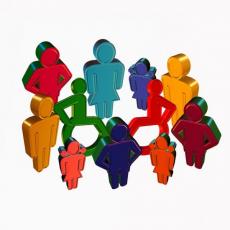Tairawhiti collaborates to discuss abuse of disabled people
Thu 18 Dec 2014
Tairawhiti has hosted a conference to discuss the recommendations of a report into the abuse of disabled people. A video recording of the conference ...

Tairawhiti has hosted a conference to discuss the recommendations of a report into the abuse of disabled people. A video recording of the conference is available online.
He Wawata - Disability Abuse Conference was attended by 50 people and streamed live nationwide to 148 disability, anti-family violence and health representatives working to address abuse against disabled people.
The conference focused on the recommendations made in the report The Hidden Abuse of Disabled People Residing in the Community: An Exploratory Study, commissioned by Tairawhiti Community Voice and written by Dr Michael Roguski. The report aimed to understand the nature of the abuse experienced; identify and explore the barriers and systematic structures which assist in the continuation of abuse; provide an evidence base from which interventions could be developed to identify and prevent abuse; and inform how Tairawhiti Community Voice could advocate for victims of abuse.
Individual, small group and focus groups were held with 44 participants, of which 10 were disabled, 10 family or whānau members of a disabled person and the remainder professionals working in the disability sector. The research found a number of structural issues were identified as maintaining the status quo. These included:
- "A low level of societal awareness of disability abuse
- A variety of silencing processes
- A lack of appropriate monitoring
- Poor management practice of a variety of disability-related residences and services
- Inadequate reporting options
- Existing legislation, and powers emerging from legislation, are inadequate. This is especially problematic in that the disabled individual does not receive adequate protection during an investigation of abuse."
The research revealed different types of abuse including financial, physical, sexual and psychological, occurring in residential services, institutional settings, home-based environments and community settings.
The research was commissioned by a local working group and funded by a Lottery grant. The working group would like to pilot a new service to provide healthy relationships education for people living with disabilities, involving awareness raising and promoting inclusive attitudes of people who support others living with disability. The service would also have a role in the investigation of allegations of abuse of disabled people.
Dr Roguski said "I don’t know of any other community in New Zealand that would say 'come and look at us, warts and all, we have issues and we really want you to expose it.' It speaks very strongly for Tairawhiti."
Other recent resources on violence against people with disability include:
A Special Issue of the Journal of Interpersonal Violence which was released in November 2014. The issue encompasses eight papers which highlight violence against people with disability.
A report from the National Society for the Prevention of Cruelty to Children (NSPCC); Protecting disabled children from abuse: We have the right to be safe (2014). The report identifies key issues about safeguarding disabled children in the UK and provides recommendations on what is needed to improve the protection of disabled children.
Two international reviews commissoned by the World Health Organization were published in 2012. Prevalence and risk of violence against children with disabilities: a systematic review and meta-analysis of observational studies found that overall, disabled children are 3.7 times more likely those without disabilities to be victims of any sort of violence. Prevalence and risk of violence against adults with disabilities : a systematic review and meta-analysis of observational studies found that overall, disabled adults are 1.5 times more likely to be a victim of violence than those without a disability, while those with mental health conditions are at nearly four times the risk of experiencing violence.
An Australian report Inclusive domestic violence standards: strategies to improve interventions for women with disabilities was published in February 2013.
Media
Image: Pixabay


